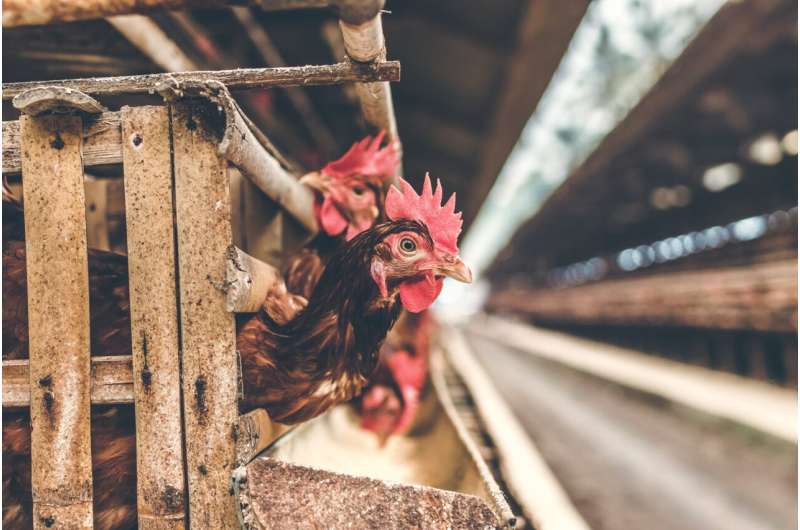
While some U.K. farmers see the advances in the development of cultured, or cell-based meat, as potential competition to traditional meat production, others from the farming community have suggested it could create a premium for pasture-reared meat.
Research into farmers’ attitudes towards cultured meat, led by a team from the University of Lincoln and Royal Agricultural University (RAU), and published in the journal Frontiers in Sustainable Food Systems, reports the views of U.K. farmers about this potentially disruptive technology.
The farmers also talked about public health effects of the new technology, how it could lead to consolidation of power in the food system, and how it might affect rural life.
While there have been many academic papers about the opportunities for cultured meat, very little work has been undertaken to ask how it might affect farming.
Now, a team of farmers, researchers, and start-ups is looking to redress this balance.
Dr. Lisa Morgans, Senior Lecturer in Animal Health and Welfare at the RAU, who led the focus group research said, “The perspectives shared by farmers on the research so far have been critical in developing our understanding of how cultured meat could affect the farming sectors here in the U.K.
“They have shared insights that we would not have known about, or appreciated, without involving farmers in a meaningful way. To ensure disruptive technologies like cultured meat are developed in an ethical and responsible way, it is essential that we engage with, and include, farmers in the research process.”
Cultured Meat & Farmers is a two-year study looking at farmers’ attitudes to cultured meat, potential opportunities and risks, and how, if production is scaled up, it could affect U.K. agriculture.
The paper reports the first phase of the project—investigating farmers’ attitudes to the technology.
The study summarizes discussions with 75 farmers, from six focus groups representing a wide range of sectors, across the four nations in the U.K.
Professor Louise Manning, from the University of Lincoln, is a lead author on the paper. She said, “This research is so important to consider how we ensure a just transition for farmers and food processors across the country, many of them microbusinesses, if edible protein is produced using this technology.
“Informing consumers about how the protein is produced, and ensuring the whole process of regulatory approval, process validation, and scale-up is transparent, is also essential to gain societal trust. This project is mapping how cultured meat might be produced at scale and what the consequences might be for both rural and urban communities.”
Among the threats that were discussed were potential effects on health, and where the product would be pitched in the market, as either a high value or low value protein—would it compete with steak or mince, chicken breast or chicken nugget? A common concern was the lack of information on the technology.
One farmer in the study said, “There’s so much money being thrown at [cultured meat] that we can’t afford to ignore it. We need to be raising all sorts of questions about things like waste products and sourcing the inputs and that sort of thing. We should be pinning them down on that now. They’re telling us this is the future; they’ve got to tell us what it means.”
Some participants saw opportunities too. One extensive lamb and beef producer thought that marketing their produce as “the real stuff” might give them a competitive edge compared to protein produced in a bioreactor. Others could imagine new markets where farms supply plant or animal based raw materials for the process.
The focus group discussions have informed the next phase of the study, mapping how cultured meat might affect different sectors within agriculture. The farmers talked about far-reaching impacts across the whole livestock industry where margins are small and the industry is under financial pressure.
The team is now partnering with nine case study farms spread across the U.K. and representing a wide range of farming systems. Together, they will explore how each farm could respond to this new technology, for example how it could best compete, or how it could supply ingredients, or even produce cultured meat, on farm.
The findings will be used to produce a heat map of the winners and losers in future scenarios where cultured meat is on sale in the U.K. The outputs from the project will support policymakers and investors to consider the technology’s multiple impacts on farming and rural communities. These further findings are due to be published late in 2024.
More information:
Louise Manning et al, Threat or opportunity? An analysis of perceptions of cultured meat in the UK farming sector, Frontiers in Sustainable Food Systems (2023). DOI: 10.3389/fsufs.2023.1277511
Citation:
Report highlights farmers’ concerns about cultured meat (2024, January 5)
retrieved 5 January 2024
from https://phys.org/news/2024-01-highlights-farmers-cultured-meat.html
This document is subject to copyright. Apart from any fair dealing for the purpose of private study or research, no
part may be reproduced without the written permission. The content is provided for information purposes only.

